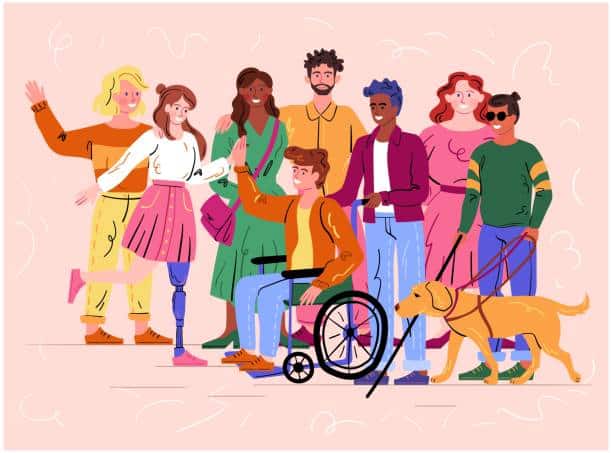As a young adult with autism, Medicaid, a lifeline for disabilities and mental health, was indispensable in my journey toward self-reliance and mental health stability. It provided me access to crucial therapies and mental health services that helped ease my transition to adulthood. Without Medicaid, this journey would have been nearly impossible. For countless individuals like me, Medicaid is not just a safety net; it’s the very foundation that allows us to live independently, pursue our dreams, and manage the unique challenges that come with living with a disability.
Mental health care in the United States is prohibitively expensive, and for people with disabilities, the costs are often compounded due to the need for ongoing support. A 2023 report from the Center on Budget and Policy Priorities found that nearly one-third of non-elderly adults with disabilities rely on Medicaid, and it remains a lifeline for over 10 million people with disabilities nationwide. Medicaid doesn’t just fund doctor visits; it covers case management, specialized therapies, and sometimes even job coaching and housing assistance. For someone with autism, these resources can mean the difference between isolation and a fulfilling, productive life.
For individuals with disabilities, obstacles to healthcare don’t just exacerbate physical symptoms; they create a psychological burden that compounds the challenges of living with a disability. The anxiety of navigating complex healthcare systems, compounded by worries over losing access to essential treatments, creates a cycle of stress and strain. This psychological toll can worsen existing conditions, from heightened sensory sensitivities to more frequent mental health crises. The result is a downward spiral where the very obstacles meant to protect budget lines end up deepening personal suffering, further isolating individuals, and draining their resilience.
When Medicaid’s reach is threatened, the stakes are not just financial; they are deeply emotional and mental. For example, over 60% of Medicaid’s spending on mental health services supports individuals with disabilities (MACPAC). These are people whose lives depend on consistent therapy, medications, and support for daily living activities. When such care is jeopardized, the underlying anxiety and fear compound the already heavy load that disability can bring. Every additional hurdle in accessing care erodes one’s sense of security, stability, and even self-worth.
One figure who poses a serious risk to Medicaid and the Center for Medicare and Medicaid Services (CMS) is Dr. Mehmet Oz, who was nominated by President-elect Trump to lead CMS. Dr. Oz’s political alignment reflects policies that could severely undermine Medicaid’s integrity. During his 2022 Senate campaign, Dr. Oz supported measures that prioritized efficiency over comprehensive care, advocating for privatized solutions and reduced federal spending. Such proposals disproportionately affect individuals with disabilities who rely on Medicaid for mental health care services, adaptive therapies, and long-term support.
Furthermore, Project 2025, a conservative agenda led by the Heritage Foundation, proposes dismantling Medicaid as we know it. This blueprint seeks to convert Medicaid funding into block grants, a change that risks significant funding reductions as states struggle to cover rising enrollment and healthcare costs. The plan also includes introducing lifetime benefit caps, work requirements, and reduced mandatory coverage, such as preventive services. These measures threaten to undo decades of progress in disability rights and healthcare equity by placing even greater financial and psychological burdens on individuals and families.
Protecting and expanding Medicaid is a moral imperative. Without it, millions of individuals with disabilities, including myself, would face insurmountable barriers to health, autonomy, and dignity. The stakes are clear: safeguarding Medicaid is not just about balancing budgets—it’s about preserving lives, mental health care access, and the promise of opportunity for all.
By protecting Medicaid for disabilities and mental health, we are ensuring that individuals can access the necessary services that support their well-being and independence, and we are investing in the overall health of our communities.














